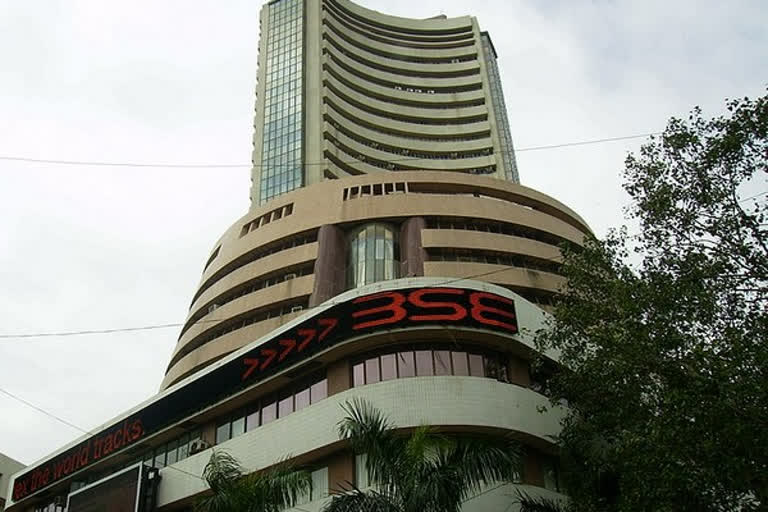Mumbai (Maharashtra): Sharp increase in interest rates by the US Federal Reserve and other central banks have battered equities markets across the world with India's key indices Sensex and Nifty slumping by more than 5 per cent during the week, posting their biggest weekly loss in more than two years.
The 30 stock S&P BSE Sensex slumped by 2,943.02 points or 5.41 per cent during the week ended Friday while the Nifty 50 of the National Stock Exchange crashed by 908.3 points or 5.6 per cent. This is the biggest weekly loss in the country's benchmark indices since May 2020. The stock markets suffered from a triple blow during the week - inflationary pressure, fears of global recession, and a sharp increase in interest rates by the US Federal Reserve.
"Markets reacted to increased risks of a global recession and persistently higher inflation. Inflation has clearly taken centre stage and is one of the key factors driving monetary policy stance and impacting the direction of equity markets," said Shibani Kurian, Senior EVP and Head- Equity Research, Kotak Mahindra Asset Management Company.
The week started with global selloffs. The benchmark Sensex crashed 1456.74 points or 2.68 per cent on Monday, the first trading day of the week. The selloffs intensified after the US Federal Reserve hiked the interest rate by 75 basis points or 0.75 per cent to 1.5 per cent. This is the highest increase in interest rate by the Fed since 1994. The Fed action came after the US CPI inflation surged to 8.6 per cent year-on-year in May, the highest level in 40 years.
The US Fed has started quantitative tightening and indicated for tight monetary policy stance in order to control inflation. Central banks across the world are struggling to control inflation. The Reserve Bank of India (RBI) has hiked the policy repo rate by 90 basis points or 0.90 per cent since May. On June 8, the RBI Monetary Policy Committee (MPC) voted unanimously to increase the policy repo rate by 50 basis points to 4.90 per cent. In its off-cycle monetary policy review in the first week of May the RBI had hiked the policy repo rate by 40 basis points.
Also read: Markets fall for 3rd day; Sensex tumbles 568 points
In the monetary policy review early this month the RBI raised the inflation forecast for the current financial year to 6.7 per cent from its earlier projection of 5.7 per cent. High inflation is expected to derail economic recovery and put pressure on the company's earnings and profits. Major stock market indices have either entered the bear territory or are near it. In the US, the S&P 500 and Nasdaq indices have slumped more than 20 per cent from their peaks and are already in the bear territory.
The Indian stock market's key indices Sensex and Nifty have crashed more than 17 per cent from their all-time intraday high of 62,245 points reached in October 2021. A market is called in bear territory when the key indices drop 20 per cent from their peak. It acts as a psychological factor and often leads to further slumps in the market as large investors reduce their exposure to equities.
"There are many moving parts which are likely to determine the course of movement for equity markets. In the near term, some of the key factors that are to be important to track include inflation and monetary policy, trajectory of commodity price movement especially oil, any development on the Ukraine-Russia war and outlook on domestic demand and corporate earnings," said Kurian.
The Sensex and Nifty have recorded six consecutive sessions of loss. The Sensex closed 135.37 points or 0.26 per cent down at 51,360.42 points on Friday. The Sensex had lost 1045.60 points or 1.99 per cent on Thursday. The Sensex had slipped by 152.18 points or 0.29 per cent on Wednesday. The index had slumped by 153.13 points, 1456.74 points and 1016.84 points in the previous three sessions, respectively. Nifty 50 of the National Stock Exchange closed 67.10 points or 0.44 per cent down at 15,293.50 points on Friday. (ANI)



